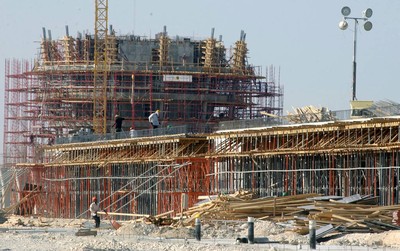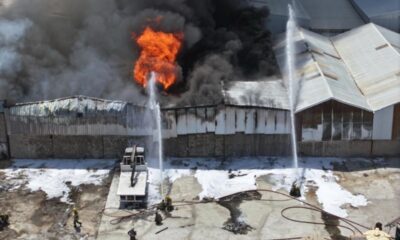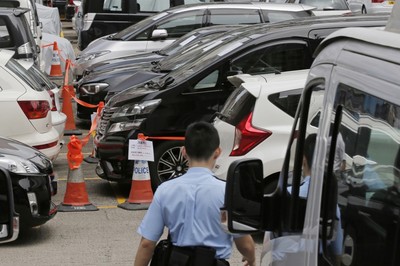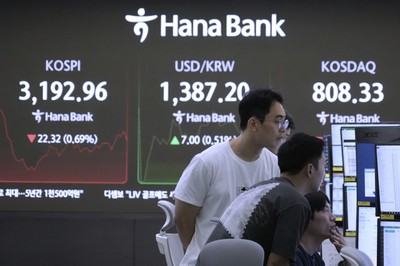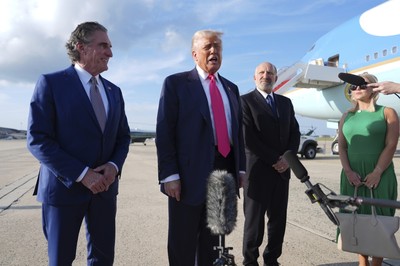Currency traders watch monitors near a screen showing the Korea Composite Stock Price Index (KOSPI), top left, and the foreign exchange rate between US dollar and South Korean won, top center, at the foreign exchange dealing room of the Hana Bank headquarters in Seoul, South Korea on July 16. (AP)
BANGKOK, July 16, (AP): Shares in Asia traded mixed on Wednesday after an update on U.S. inflation pulled most Wall Street stocks lower, though gains for Nvidia pushed the Nasdaq to another record. Tokyo’s Nikkei 225 edged less than 0.1% lower, to 39,663.40. Investors are focusing on the potential impact of an election for the Upper House of Parliament on Sunday that is expected to lead to tax cuts and higher spending as lawmakers try to restore the waning popularity of the ruling Liberal Democrats.
Worries over a deterioration in Japan’s fiscal health have pushed yields of long-term Japanese government bonds to their highest levels in years. “What’s at stake isn’t simply which party hands out the biggest bundle of goodies. It’s whether the walls holding up Japan’s house of debt can withstand another round of fiscal fireworks…” Stephen Innes of SPI Asset Management said in a commentary.
Elsewhere in Asia, Hong Kong’s Hang Seng added 0.1% to 24,618.23 while the Shanghai Composite index slipped 0.1% to 3,503.78. South Korea’s Kospi lost 0.9% to 3,186.38 and in Australia, the S&P/ASX 200 declined 0.8% to 8,561.80. Taiwan’s Taiex jumped 0.9% and India’s Sensex was flat. Thailand’s SET also was little changed. In Jakarta, shares rose 0.4% after President Donald Trump said on Truth Social that he plans to tariff imports from Indonesia at 19%, while American goods sent to the Southeast Asian country will face no tariffs.
Trump also said Indonesia committed to buying U.S. energy, agricultural products and aircraft. On Tuesday, the S&P 500 fell 0.4% to 6,243.76, but stayed near its all-time high set last week, as 90% of the stocks within the index fell. The Dow Jones Industrial Average dropped 1% to 44,023.29. The Nasdaq composite rose 0.2% to a record 20,677.80 thanks to Nvidia, the market’s most influential stock.
Nvidia said the U.S. government has assured it that licenses will be granted for its H20 chip, used for artificial intelligence, again and that deliveries will hopefully begin soon. Its 4% gain was by far the strongest force pushing upward on the S&P 500. Stocks of big U.S. banks were mixed following their latest profit reports. JPMorgan Chase slipped 0.7% despite reporting a stronger profit than analysts expected, as CEO Jamie Dimon warned of risks to the economy because of tariffs and other concerns.

 Latest News20 hours ago
Latest News20 hours ago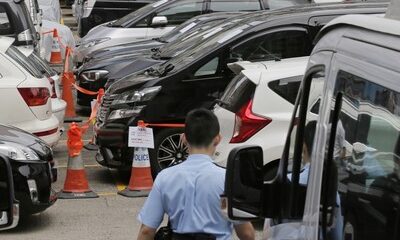
 Business7 hours ago
Business7 hours ago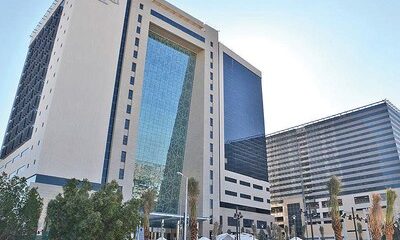
 Politics23 hours ago
Politics23 hours ago
 Latest News22 hours ago
Latest News22 hours ago
 Latest News23 hours ago
Latest News23 hours ago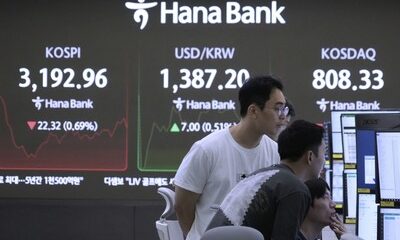
 Business9 hours ago
Business9 hours ago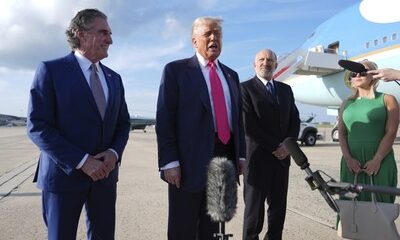
 Business10 hours ago
Business10 hours ago
 Latest News18 hours ago
Latest News18 hours ago
